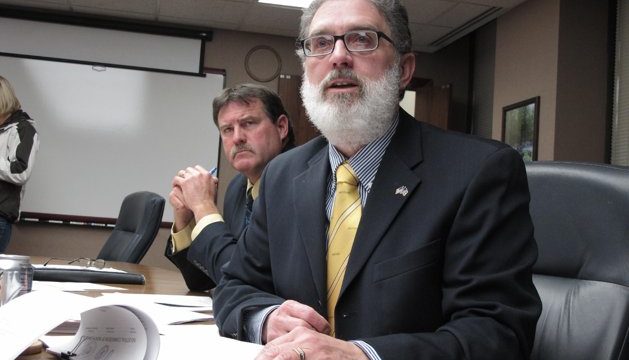ND's Top Oil Regulator Warns Of Production Slow Downs, Wants Fund To Fight Federal Regulations

Lynn Helms, North Dakota’s Mineral Resources Director, says it’s “not all roses and sunshine” in the oil patch. He’s warning of a possible slow down in production (and thus the revenues the oil boom is pumping into state coffers) due to changing market conditions and/or new federal regulations.
And to that last point, Helms wants legislators to set aside some funds for potential legal challenges to any new federal regulations threatening oil production in the state.
BISMARCK, N.D. (AP) – North Dakota’s top oil regulator says increased federal regulations and competition from other oil plays could drastically cut production in the state’s oil patch.
State Mineral Resources Director Lynn Helms told the North Dakota House Appropriations Committee that the state’s oil industry is healthy. But he says “it’s not all roses and sunshine.”
Helms appealed to lawmakers to keep a $1 million fund available to challenge the federal government if it imposes additional hydraulic fracturing regulations.
The worry expressed by Helms about the possible decline of oil production (and thus, inevitably, the tidal waves of tax revenues from oil production and the economic activity surrounding it) is interesting in the context of Governor Jack Dalrymple taking the time to expressly address concerns about overspending during his State of the State address earlier this week:
I think the gov felt compelled to insert these words of confidence because, even for the most aggressive of tax-and-spenders, North Dakota’s budget growth is getting a little scary. This chart is from the Legislative Council’s Budget and Fiscal Trends report handed out to legislators in Bismarck earlier this week:

What you’re looking at is a 163% increase in general fund spending, and a 316% increase in spending from special funds.
Of course, the governor’s office would probably argue that a big chunk of this is one-time spending that doesn’t necessarily obligate the state going forward. That’s sort of true (infrastructure costs money to maintain even after it’s built), but even if we break it down total appropriations are rising dramatically:

Why is it prudent for the legislature to set aside funds for a possible challenge to any federal regulation detrimental to oil production in the state? Why should legislators be worried about shifting market conditions, and competition from other oil plays?
Because we’ve inflated our state budget to such a degree, if the oil tax revenues go away or even just diminish to a significant degree we’re in a lot of trouble.







